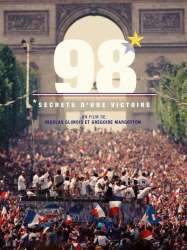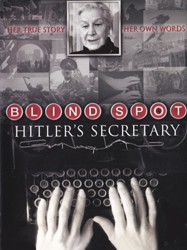Durazno est un film de genre Documentaire sorti en France le 26 mars 2014 avec Nahuel Pérez Biscayart
Durazno (2014)

Si vous aimez ce film, faites-le savoir !
- Infos
- Casting
- Infos techniques
- Photos
- Vidéos
- Passages TV
- Citations
- Personnages
- Musique
- Récompenses
Durazno (aka Apricot) is an documentary film directed by Yashira Jordan. The film utilized crowd-funding and ecological production, and is one of the first of its type to be made in Bolivia and Argentina.
The documentary was filmed during 2012 in the Argentinian cities of Santa Fe and La Plata, as well as in Cochabamba, Bolivia.
Synopsis
The documentary follows Ezequiel W. Gonzalez and Nahuel Pérez Biscayart as they set out on a road trip together. The two are both in search of something: W. Gonzalez is looking for his biological father while Biscayart is studying him with the intent of basing a character off of him. Both men suffer from issues stemming from identity. W. Gonzalez has to deal with the long-term effects of his abandonment as an infant by his mother, the lack of any clear knowledge of who his father is, and the mysterious death of his adopted father. Meanwhile Biscayart struggles to identify his character, W. Gonzalez, and ultimately himself.Acteurs

Nahuel Pérez Biscayart
(Ezequiel)
Commentaires
Postez un commentaire :
Suggestions de films similaires à Durazno
Il y a 11 films ayant les mêmes acteurs, 8961 ayant les mêmes genres cinématographiques, pour avoir au final 70 suggestions de films similaires.Si vous avez aimé Durazno, vous aimerez sûrement les films similaires suivants :

98, secrets d'une victoire (2018)
, 1h45Origine France
Genres Documentaire
Thèmes Sport, Documentaire sur le sport, Football
Note70%





Vingt ans après leur victoire à la Coupe du monde de football de 1998, l'ensemble des joueurs et membres du staff de l'équipe de France partagent leurs souvenirs de leur parcours durant cette compétition ; du premier match victorieux contre l'Afrique du Sud à la finale au scénario idéal contre le Brésil, en passant par le but en or contre le Paraguay, les tirs au but contre l'Italie et la demi-finale disputée contre la Croatie, ainsi que les à-côtés, comme la vie à Clairefontaine ou les changements dans l'opinion publique et les médias.
 , 55minutes
, 55minutesGenres Documentaire
Thèmes L'environnement, La mer, Transport, Documentaire sur le monde des affaires, Documentaire sur l'environnement
The area was originally considered worthless by European-Australian settlers, who fenced it off and abandoned it. The town was established around the start of the 20th century by German immigrant settlers. Its population increased after the first and second World Wars due to the government's policies of subsidies to encourage settlement by veterans. The people of Rainbow have struggled to eke out an existence for more than three generations, with global economics and government policy compounding the difficulties of marginal farming. The film draws from home movies from the 1940s to portray the people in this town.

The Kid Stays in the Picture (2002)
, 1h33Réalisé par Nanette Burstein, Brett Morgen
Origine Etats-Unis
Genres Documentaire
Thèmes Documentaire sur le monde des affaires, Documentaire sur le cinéma, Documentaire sur une personnalité
Acteurs Robert Evans, Eddie Albert, Norma Shearer, Ali MacGraw, Francis Ford Coppola, Catherine Deneuve
Note72%





The Kid stays in the picture retrace la fulgurante ascension, la chute puis de nouveau l'ascension de Robert Evans, le légendaire producteur hollywoodien du Parrain, de Rosemary's baby et de Love story. Adapté de l'autobiographie de Robert Evans, qui en assure lui-même le commentaire, ce documentaire retrace la vie de ce personnage hors du commun qui fut d'abord une star de cinéma avant de passer à la production.

Jim Brown: All-American (2002)
, 2h20Réalisé par Spike Lee
Origine Etats-Unis
Genres Biographie, Documentaire
Thèmes Sport, Documentaire sur le sport, Football américain, Documentaire sur une personnalité
Acteurs Raquel Welch, Oliver Stone, Melvin Van Peebles, Mario Van Peebles, Fred Williamson, Bernie Casey
Note63%






Je me souviens (2002)
, 47minutesOrigine Canada
Genres Documentaire
Thèmes Le racisme, Documentaire sur la discrimination, Documentaire sur le droit, Documentaire sur une personnalité, Documentaire sur la politique, Politique, Documentaire sur la politique du Québec

India: Kingdom of the Tiger (2002)
, 42minutesRéalisé par Bruce Neibaur
Origine Canada
Genres Documentaire
Thèmes Mise en scène d'un animal, Documentaire sur la nature
Acteurs Christopher Heyerdahl
Note60%





The plot is loosely connected to the documental stories published in Jim Corbett's 1944 bestselling book Man-Eaters of Kumaon. Narrator of the film is Jim Corbett. In the film, Corbett, who is portrayed by Christopher Heyerdahl, is asked to kill a man-eating tiger who killed a young woman in Kumaon. Corbett arrives to Kumaon and meets with local people. The sister (Mishra Smriti) of the victim takes Corbett to the killing site. They together ambush the man-eater and Corbett kills the tiger from the machan. During this plot, the narration (by Corbett) contains stories of the history of India and the Kumaon region, as well as the efforts to save Indian tigers.
 , 1h27
, 1h27Genres Guerre, Documentaire
Thèmes Le racisme, Religion, Documentaire sur la discrimination, Documentaire sur le droit, Documentaire sur la guerre, Documentaire historique, Documentaire sur une personnalité, Documentaire sur la politique, Documentaire sur la religion, Politique, Religion juive, Documentaire sur la Seconde Guerre mondiale
Note72%






Lost in La Mancha (2002)
, 1h33Origine Royaume-uni
Genres Documentaire
Thèmes Film traitant du cinéma, Documentaire sur le monde des affaires, Documentaire sur le cinéma, Documentaire sur les films, Buddy movie
Acteurs Jeff Bridges, Terry Gilliam, Johnny Depp, Jean Rochefort, Vanessa Paradis, Tony Grisoni
Note72%





Pendant l'été 2000 en Espagne, Fulton et Pepe suivent, pour en réaliser le making of, le tournage de ce qui aurait dû être The Man Who Killed Don Quixote, un film que projette de réaliser Terry Gilliam depuis plusieurs années. Jean Rochefort doit tenir le rôle de Don Quichotte. Johnny Depp et Vanessa Paradis font également partie de la distribution. Cependant, le tournage tourne vite à la catastrophe : problèmes d'organisation, conflits personnels, vols intempestifs de F16 de l'armée de l'air américaine basée en Espagne sur le site de tournage, pluie diluvienne dans un lieu désertique qui dégrade le matériel et altère le décor – le désert servant de lieu de tournage devenant verdoyant le lendemain du déluge –, maladie de Jean Rochefort qui empêchera celui-ci de jamais remonter à cheval et l'écarte des plateaux.
 , 1h32
, 1h32Genres Documentaire, Musical
Thèmes La musique, Documentaire sur la musique, Documentaire sur une personnalité, Musique
Acteurs Jeff Tweedy, Fred Armisen
Note73%






Horns and Halos (2002)
, 1h30Réalisé par Michael Galinsky
Origine Etats-Unis
Genres Drame, Biographie, Documentaire
Thèmes Film sur un écrivain, Documentaire historique, Documentaire sur une personnalité, Documentaire sur la politique, Politique
Note70%





 Connexion
Connexion